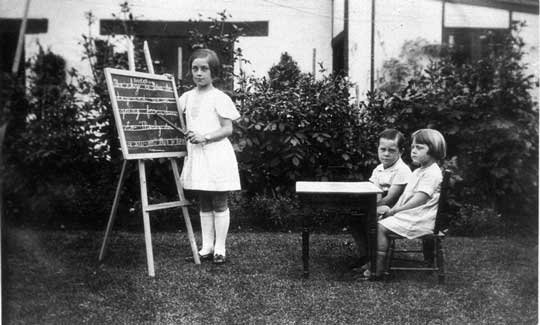
The title of this blog may be a bit misleading. Oh, it is about “gaming school,” but not in any creative video game sense. Instead, it is the tale of three kids–my own to be exact. Noah, a junior in high school; Olivia, an 8th grader; and Ava, a 5th grader, are all very diverse with their interests and passions, and also they are all very different with their approaches to school.
Noah has been blessed with natural abilities with music. He was an early speaker, picked up the violin prior to 2nd grade, discovered the piano a few years later, and plays both instruments beautifully today. In elementary, Noah took an IQ test and scored 135 and was identified as gifted. Many things came naturally for Noah, and school, particularly in elementary, was easy for him. He did not work that hard and really did not have to, for the rigor mainly consisted of completing worksheets and puzzles. He never studied and breezed through school, resting on his laurels.
Then middle school hit, and so did a graduation requirement algebra test in 8th grade. Noah, who was not used to working, hit a wall. Unbeknownst to my wife and I, Noah got behind all the Study Island computer practice tests and was failing his advanced Algebra class. When his teacher finally notified us, Noah had a weekend to complete what seemed to be hundreds of Study Island online units to pass the class. To add to the challenge, every time he would miss one or two answers out of 10 on a test, he had to take more tests to get to the preset success percentage of 85%. He kept digging a hole that he was not going to get out of.
To help him from failing, our whole family got on a device or computer to knock out these exams that kept regenerating. The result was not Noah getting better in math but with all of us getting frustrated with the testing culture and wanting to get voted off the damned Study Island. Noah did pass the state assessment and did learn a lesson, even though it might not have been math content. He learned to play school and discovered that after-school was when he could explore his artistic interests with music, drawing, designing and playing video games. School, save for elective teachers in engineering and film studies, has been a necessary evil to complete. Noah has straight “A’s” in high school and is looking at colleges.
Olivia has always been a hard worker and an excellent athlete. Unlike her older brother, we never had to get on her to do her school work. She would complete all of her assignments and do it very neatly. By the time she hit middle school, the homework and test prep seemed to increase; however, Olivia did it all, even if it meant staying up late on the days she had a sports practice. Math worksheets of 30 problems a night, photocopied worksheets in social studies, and other busy work has become a nightly staple. Olivia admits that she knows how to study for tests but also admits that she doesn’t retain much afterwards. She gets excited when the rare moment occurs for her to follow her interests and not produce the same cookie-cutter product expected of everyone in her class, but these moments are few and far between. She is a master at “playing school” by knowing the expectations of her teachers and what they accept as “good” work. Olivia is a straight “A” student and will go to high school next year.
Ava is full of life and energy. She is very creative and loves to sing and act, and much to the chagrin of her siblings, performs all the time. School, however, has been a challenge. She has never been engaged in school and gets frustrated with the restraints of “staying within the lines.” She is not a behavior problem but has issues with sitting all day in a cattle call culture that does not foster her individuality. Unlike Olivia, she could care less about the product she turns into school. Homework is “stupid” and a school a bore. She has not learned to play school and her grades, although not awful, or not as high as her siblings, but she does not seem to care too much. She conforms to the stifling culture at school but lets loose her emotions and energy once she gets home. Ava has found a passion with acting, but this does not occur in school. School is something she has to do to get to what she wants to do.
As an educator, it breaks my heart that school for many students is not fun and engaging and that, for the most part, individual interests and pathways are not fostered or nurtured. My children are fortunate to be born in a zip code of privilege and to parents, who understand that children need to experience different things and explore interests. However, school could be that place for them. Playing school is what our students do. Some are better than others at it, but it does all appear to be a game. There are certainly educators, schools, and districts that do “get it,” but for the majority of school systems, the game continues on. Now, more than ever, we need to encourage school leaders, teachers, parents, and policy makers to stop playing school.